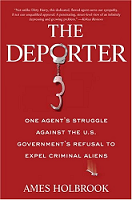*Update below* There has been a change in the nuclear NorK situation, with North Korea agreeing to come back to the six-party talks. It's a concession, but not more than a very small and calculated concession... Pyongyang had refused to return to the talks until the United States separately negotiated an end to a crackdown on North Korea's counterfeiting of U.S. currency. But that demand disappeared Tuesday during seven hours of meetings, set up by China at Beijing's Diaoyutai State Guesthouse, involving U.S., North Korean and Chinese officials. North Korea instead agreed to a long-standing U.S. proposal to deal with the counterfeiting issue through a working group of the six-party talks. Assistant Secretary of State Christopher R. Hill emerged from the meetings to say that there was the potential for "substantial progress" in resolving an issue that has raised tensions throughout the region, including the possibility of a nuclear arms race. U.S. officials were privately puzzled by the mercurial government's change of heart, though they said they hope the universal condemnation of North Korea's nuclear test and the swift imposition of U.N. sanctions had played a role.
From the AP:The U.S. and Chinese governments announced Tuesday that North Korea agreed to rejoin six-nation nuclear disarmament talks, a surprise diplomatic breakthrough that comes only three weeks after the communist regime conducted its first known atomic test.
You can guess how our good friend Russia and the appeasing South Koreans feel about this. But our real friend, Japan who is in a better postion of objectivity, is skeptical as they should be:
...State Department spokesman Tom Casey said the U.S. would enter the new round of talks insisting they start with a September 2005 agreement forged between the six nations, in which Pyongyang pledged to scrap its nuclear programs in return for aid and security assurances.
...Both the U.S. and North Korea showed flexibility at Tuesday's meeting, Hill said, with Washington agreeing to discuss the financial sanctions. The U.S. previously had said the issue was unrelated to talks on Pyongyang's nuclear program.
Pyongyang did not make the lifting of the financial sanctions a condition for resuming the talks, Hill said.
At the talks, Pyongyang's negotiator, Kim Gye Gwan, "made the point" that North Korea considered itself a nuclear power, Hill said. "I made it very clear that the United States does not accept the DPRK as a nuclear power and neither does China."
Other partners in the talks - Japan, Russia and South Korea - had mixed reactions to the announcement.While Tokyo welcomed the prospect of a new round of talks, it "does not intend to accept North Korea's return to the talks on the premise that it possess nuclear weapons," public broadcaster NHK quoted Japanese Foreign Minister Taro Aso as saying.
So far we have a nuclear North Korea, where supposedly everyone agrees it should be non-nuclear. But the real story is that China got what they wanted, a move toward stabilization, and the threat of a collapsed North Korea diminished. They could care less about N. Korean nukes.
Aso added that a resumption of talks "is conditional on North Korea not possessing nuclear weapons.
Don't think North Korea will return to the talks with intent to disarm; they will use the nuclear card to their advantage, and giving it up wouldn't exactly help their negotiating advantage.
With the talks Kim Jong-il has been afforded more time, the UN sanctions now less pertinent to enforce, and the potential danger increased. The only hope from such talks would be unconditional reigns for nuclear inspectors. Anything short of that would be food for a monster, in the name of temporary stability.
*Update* U.S. officials involved were puzzled; I tend to think rather they were skeptical, and the deal seems to be headed in the right direction.
From the WaPo:
skip to main |
skip to sidebar

10/31/2006
N. Korea & More Six-party Talks. Updated
by
Stan
at
12:55 PM
![]()

Buzz
2A Blogs
War on Guns
Alphecca
Say Uncle
Of Arms and the Law
Armed and Safe
The Smallest Minority
The Bitch Girls
Snowflakes in Hell
Call Me Ahab
Mr. Completely
Blogonomicon
The CUG
Red's Trading Post
Countertop Chronicles
Ride Fast & Shoot Straight
Keyboard and a .45
Walls of the City
The Gun Shots
Sharp as a Marble
Shooting the Messenger
Captain of a Crew of One
Near the Salty City
Alphecca
Say Uncle
Of Arms and the Law
Armed and Safe
The Smallest Minority
The Bitch Girls
Snowflakes in Hell
Call Me Ahab
Mr. Completely
Blogonomicon
The CUG
Red's Trading Post
Countertop Chronicles
Ride Fast & Shoot Straight
Keyboard and a .45
Walls of the City
The Gun Shots
Sharp as a Marble
Shooting the Messenger
Captain of a Crew of One
Near the Salty City
Archives
- July 2012 (1)
- March 2010 (1)
- May 2009 (1)
- January 2009 (13)
- December 2008 (5)
- November 2008 (9)
- October 2008 (14)
- September 2008 (1)
- June 2008 (23)
- May 2008 (29)
- April 2008 (48)
- March 2008 (21)
- February 2008 (31)
- January 2008 (82)
- December 2007 (38)
- November 2007 (62)
- October 2007 (93)
- September 2007 (65)
- August 2007 (29)
- July 2007 (8)
- June 2007 (8)
- May 2007 (25)
- April 2007 (21)
- March 2007 (39)
- February 2007 (30)
- January 2007 (78)
- December 2006 (6)
- November 2006 (31)
- October 2006 (83)
- September 2006 (69)
- August 2006 (25)
- July 2006 (11)
- June 2006 (59)
- May 2006 (4)
- April 2006 (2)
- January 2006 (7)
- May 2005 (1)















If you like it, link it | 0 Comments:
Post a Comment